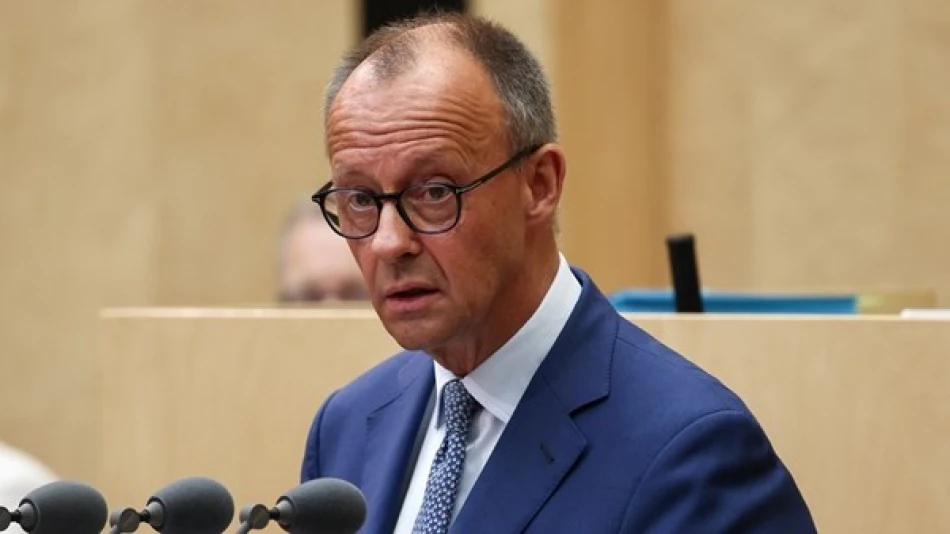
Meretz Proposes Ukraine-Russia Talks in Geneva to Resolve Conflict
Germany Pushes Geneva as Venue for Ukraine-Russia Ceasefire Talks as Western Powers Plan Post-War Security Framework
German Chancellor Friedrich Merz has proposed Geneva as the host city for potential ceasefire negotiations between Ukraine and Russia, signaling a European diplomatic push to establish neutral ground for peace talks. The proposal comes ahead of a Thursday meeting involving approximately 30 nations focused on crafting post-war security guarantees for Ukraine—a critical step that could determine the conflict's long-term resolution and regional stability.
Switzerland's Neutral Ground Strategy
Speaking at a joint press conference with Swiss President Karin Keller-Sutter, Merz emphasized Geneva's suitability as a ceasefire agreement venue. "Geneva would be an appropriate place to conclude a ceasefire agreement," he stated, indicating he would formally present this proposal to the so-called "Coalition of the Willing" during Thursday's discussions.
This move leverages Switzerland's centuries-old tradition of diplomatic neutrality, positioning Geneva alongside its historical role in international negotiations. The city has previously hosted critical diplomatic breakthroughs, from Cold War summits to Middle Eastern peace processes, making it a logical choice for high-stakes Russia-Ukraine talks.
The "Coalition of the Willing" Takes Shape
The Franco-British initiative, dubbed the "Coalition of the Willing," has been conducting months of behind-the-scenes negotiations to establish a comprehensive post-conflict deterrence framework. The coalition's primary objective centers on determining what military contributions member nations can provide to Ukraine as a long-term security guarantee—essentially creating a tripwire mechanism to prevent future Russian aggression.
Strategic Military Deterrence Planning
The coalition's approach mirrors successful post-conflict security arrangements seen in other regions, though with unique challenges given Russia's nuclear capabilities and regional influence. Unlike traditional NATO Article 5 guarantees, this framework would need to operate outside existing alliance structures while maintaining credible deterrent value.
France Leads Virtual Diplomacy Push
Thursday's primarily virtual meeting, hosted by France, represents the latest phase in coordinated Western efforts to establish Ukraine's post-war security architecture. The timing suggests growing confidence among European leaders that ceasefire discussions may become viable in the coming months, particularly as military and economic pressures mount on both sides.
France's leadership role reflects President Emmanuel Macron's broader European sovereignty agenda and his consistent push for EU strategic autonomy. By spearheading these security guarantee discussions, Paris positions itself as a key architect of post-conflict European order.
Market and Geopolitical Implications
The diplomatic momentum carries significant implications for energy markets, defense contractors, and reconstruction investments. European defense stocks have already reflected increased military spending commitments, while energy markets remain sensitive to any signals suggesting conflict de-escalation or prolonged instability.
For investors, the emergence of concrete post-war planning mechanisms suggests institutional confidence in eventual conflict resolution, potentially stabilizing long-term European investment outlooks. However, the complexity of security guarantees also indicates sustained elevated defense spending across participating nations.
Historical Precedent and Challenges Ahead
The Geneva proposal recalls successful neutral-venue negotiations from the 1955 Geneva Summit to more recent Iran nuclear talks. However, the Ukraine conflict presents unique challenges: unlike previous East-West negotiations, this involves active territorial occupation and competing claims over internationally recognized borders.
The success of any Geneva-hosted talks will largely depend on whether both Moscow and Kyiv view Switzerland's neutrality as genuine, particularly given Swiss participation in EU sanctions against Russia. This dynamic could complicate traditional Swiss diplomatic advantages, requiring careful navigation of perceived neutrality versus substantive support for international law.
Most Viewed News

 Layla Al Mansoori
Layla Al Mansoori






